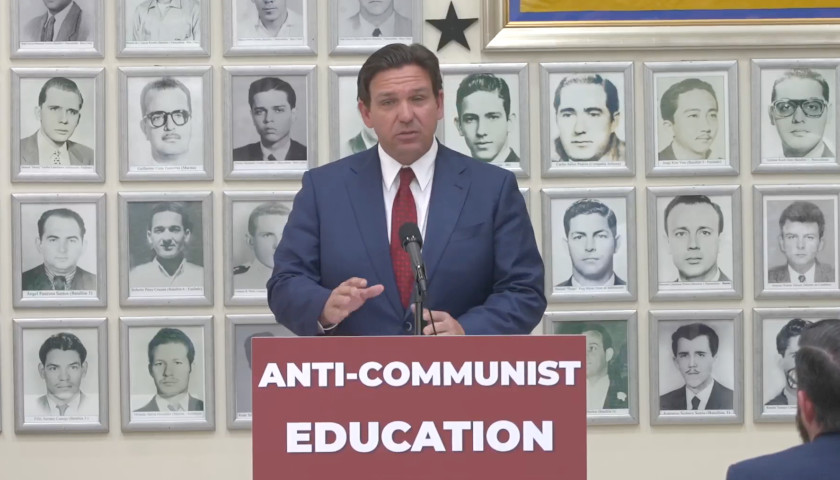Metro Nashville Government, along with Shelby County Government, has filed a notice of appeal on a court ruling dismissing their lawsuit over education savings accounts (ESA) legislation. This is the latest round in a series of legal actions brought forth in response to legislation passed in 2019. The filing of an appeal indicates that Nashville Government plans to continue its fight against legislation narrowly passed in 2019.
On November 23rd of this year, a three-judge panel – made up of Chancellor Anne Martin, Judge Tammy Harrington, and Judge Valerie Smith – released a ruling in response to the initial lawsuit denying standing to the plaintiffs. In the court’s opinion, adjustments made by the state to offset potential losses in school funding for impacted districts, make any article arguments for lost funding purely hypothetical. That ruling cleared the plate of all legislation filed in opposition to the go signature legislation.
In an email exchange with The Tennessee Star asking on what grounds the appeal was being filed, Metro Nashville’s Director of Law Wallace W. Dietz replied, “We will outline our arguments when the briefs are filed with the Court of Appeals. That said, Metro agrees with the conclusions reached by Chancellor Martin in her dissenting opinion and will include those arguments in our appeal.”
Martin ruled in 2013, when the case was in front of her, that the program was unconstitutional. As part of the 3-judge panel, she reiterated her belief, writing that she “would have found that Plaintiffs’ allegations are more than sufficient to establish ripeness,” and that she “would have permitted County Plaintiffs’ equal protection claim”. It was Martin’s opinion that the court should proceed to further analysis.
ESA’s or “vouchers,” as they are oft labeled, are part of a plan designed to give eligible parents about $7,300 to use on private school tuition and other education-related costs. Eligibility is determined by a student being enrolled in a district with 10 or more schools on the priority list and living in a household whose annual income does not exceed twice the federal income eligibility guidelines for free lunch. Currently, that income rate would be roughly $72,000 annually for a family of 4.
Based on the law, as it is written, only students who attend schools in Memphis or Nashville would be eligible to participate in the state ESA program. This formed the basis for initial lawsuits filed in the wake of the legislation passing. In an initial ruling, the court sided with the plaintiffs, agreeing that the law violated the Home Rule. Martin, the presiding judge, wrote in her ruling, “There is no dispute that the qualifications were tailored, through multiple amendments, to only include those two school systems, and bill sponsors could only secure passage from representatives against the bill if their district school systems were excluded.”
The state appealed to the Tennessee Supreme Court, which heard the case in 2021, but the decision was delayed by the untimely death of Justice Cornelia Clark. A specially appointed judge filled in for Clark, and the high court overturned the lower courts, declaring the law doesn’t violate the home rule clause because it governs the actions of local school districts, not the counties that sued and which help to fund those schools.
The injunction against enrolling students was lifted in mid-July of 2022, allowing the TDOE to begin enrolling students for the upcoming school year. At the time of the injunction being lifted, Commissioner Schwinn acknowledged the challenge of getting the program up and running on such short notice. She went on to tell ChalkbeatTN of expectations to hire an outside vendor to help with that oversight in the 2023-24 school year and that the department will seek bids for that work in the near future.
According to numbers supplied by the state department of education, as of late November, 1,046 applications for the ESA program have been received by the state. Three-hundred-six have been approved for students in Memphis, with 209 approved for students in Nashville. Of the 515 approved applications, 327 are enrolled in one of the 40 approved private schools.
Students in more districts could be considered eligible for the program if a bill filed by State Senator Todd Gardenhire (R – Chattanooga) passes. Gardenhire’s proposal expands the eligibility criteria for an ESA to include students zoned to attend a school in an local education agencies (LEA) with at least five schools, instead of at least 10, identified as being in the bottom 10 percent of schools in 2017, and identified as priority schools in 2015, 2018, and 2021 priority school cycles. LEA’s are local school districts.
When asked if the two metro governments intended to seek an injunction placing a hold on further enrollment, Dietz told The Star, he was not at liberty to disclose litigation strategy at this time.
Dietz further explained that the current phase of the case is being handled by in-house attorneys at Metro Legal. Adding that being the holiday season, the finance officer was on vacation, so the fees paid to date for the initial phase of the case could not be accessed.
The next step in the case is for the Chancery Court Clerk and Master to prepare the record for the Court of Appeals. Once that is sent to the Court of Appeals, deadlines for filing briefs will be automatically established by rule.
– – –
TC Weber is a reporter at The Tennessee Star and The Star News Network. He also writes the blog Dad Gone Wild. Follow TC on Twitter. Email tips to [email protected]. He’s the proud parent of two public school children and the spouse of a public school teacher.








